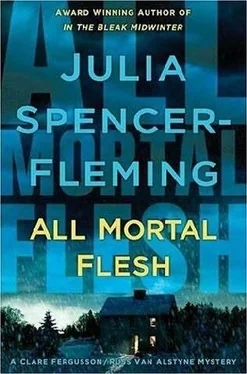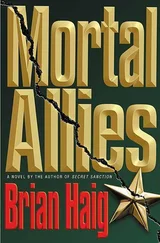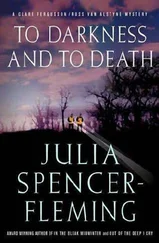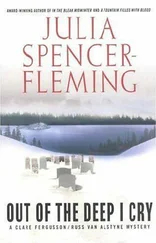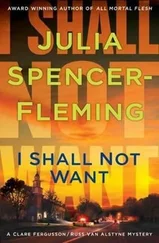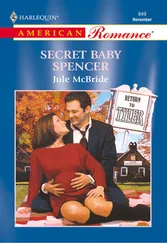“I want to tell you something I’ve never told anyone,” he said.
“All right.”
“You know how I said I was drafted? I wasn’t. I enlisted.”
“What?” She shifted around so they were facing each other. “You’re pulling my leg.”
“I swear.”
“In 1970? You enlisted during the height of the Vietnam War? And then lied about it?”
“Technically, 1968 was the height of the war-”
She laid a finger across his lips. “Russ.”
“I was desperate to get away from home, but I felt like my mom needed me to be the man of the house after my dad died.” He rubbed his fingers along the curve of her waist. “I was eighteen years old, and I could see my whole life playing out in front of me. A job at the mill. Living with my mother until I married one of the girls from my class and then moving next door. Going to the Dew Drop Inn every Friday and to Mom’s for dinner ever Sunday. I thought I’d rather go out in a blaze of glory than that.” He smiled, fond and rueful of the idiot kid he had been.
“But-the Selective Service office-there must have been a paper trail! How did you keep it a secret?”
“More by luck than design. I paid a visit to the local draft board president. Old Harry McNeil. Used to be the chief of police in my grandparents’ day, if you can believe that. Looking back, I’m amazed he went along with it. He did ask me, at one point, if I was sure I’d rather face the VC than my mother.” He grinned.
“I know your mother. That’s a tough call.”
“I guess he sympathized with a young man who wanted to get as far away from Millers Kill as he could. He gave me an official notice to show my mom-they were just form letters, with the info typed in-and I took the bus to Saratoga and enlisted the same day.”
“And no one ever found out?”
“Mr. McNeil died before I left. My mother didn’t start kicking up until after I was through basic and got my orders. If anybody else from the draft board ever checked the records, I guess they must have assumed old Mr. McNeil’s mind had wandered and he had misplaced my paperwork.”
“That draft notice turned your mom into an activist. You changed her whole life.”
“That’s one of the reasons I’ve never told anybody before. Who wants to find out her reason for living was based on a lie?”
She traced the outlines of his face with her thumb. “I’m glad you told me.”
He measured himself. He felt… lighter. And why not? She was helping him carry the secret now.
The fire was low. No words now. He framed her face in his hands, stroking her hair, her cheekbones, the line of her jaw. If he were a young man, he might believe he would never forget her skin, or her smile, or the strength of her. But he had learned that the mind didn’t always hold on to what the heart demanded. Remember, he told his hands. Remember this.
He woke up at some point. The embers in the woodstove were a smudge of orange. He lifted himself up on one elbow, careful not to disturb Clare, and looked out the window. The snow had stopped. The stars were blazing with the fierce light that only comes in the hour before dawn. Part of him knew he should go, but then Clare gave a little snore and burrowed closer against him. He drew the knitted afghan from the back of the sofa and tucked it around them. He lay awake for a long time, watching her sleep.
Bright sunlight streamed through the windows when he woke the second time. He was alone, covered in the afghan. The cabin was warm again. He sat up, fumbled for his glasses on the coffee table. The first thing he saw was the woodstove, stuffed with logs, heat rolling off it in waves. The second thing he saw was the note on the coffee table. My dearest Russ, it read, I’m sorry, but I can’t say any more good-byes to you. I’m taking my snowshoes and my lunch and I’m going, like Thoreau, to be alone in the woods. He almost wanted to smile. How many guys got Thoreau quoted at them in a Dear John letter? “Only you, Clare,” he said to the empty room. “Only you.”
He threw the note into the woodstove. Then he left, to start the rest of his life without her.
Inspector Jensen came back into the interview room. “His story jibes with yours,” she said.
“That’s because we’re both telling the truth,” Clare said.
Jensen looked at her as if she had just offered to sell the Brooklyn Bridge. “Reverend Fergusson, there’s a saying we learn in law school. ‘Most crimes aren’t witnessed by priests and bishops.’ It’s a way of explaining to juries why the prosecutor trusts the testimony of some scumbot who’s got a record almost as long as the defendant’s. But I’m thinking there must be a flip side to that saying. How can there be a crime if a priest or a bishop is a witness?”
“I don’t think I follow you.”
Jensen sat on the table. Clare had to look up to see her face. “Here you are, a priest. Rector of the local church. And you’re alibiing Mr. Van Alstyne. Normally, I’d say, ‘Okay, that clears that up! Thanks very much, Reverend!’ ” She leaned closer. “But you two weren’t exactly at an all-night prayer meeting, were you? You were lovers.”
“That’s… not exactly accurate.”
“Even more of a reason to help him off his wife. He wouldn’t sleep with you while she was still around, so-” Jensen sliced her finger across her neck. “Your church doesn’t have a problem with widowers remarrying, does it?”
“That’s ridiculous! I wouldn’t sleep with a married man, but I’d be okay with murder? That doesn’t make any sense.”
“One thing I’ve learned, Reverend, is that most of the time, there is no sense behind killing someone. A sixteen-year-old kills a twelve-year-old because the kid hit him with a water balloon. A guy beats another guy to death outside of a bar because he thought he was hitting on his girl. A couple of drifters drag a grandma behind the shopping center and shoot her for twenty bucks and the keys to a ten-year-old minivan.” She shook her head. “A pair of lovers conspiring to kill a spouse so they can be together? Hell, that’s not just reasonable. It’s one of the oldest stories in the book. David and Bathsheba, wasn’t it?”
“Russ Van Alstyne didn’t kill his wife.”
“Can anybody else place him at that cabin between sunset and sunrise?”
“Of course not! That was the point.”
“Hey, I understand. I wouldn’t want any witnesses if I was boinking somebody’s husband, either.”
“I wasn’t-” A thought stopped her. “Deacon Willard Aberforth came to visit me on Monday. Around one or two o’clock. I have his number somewhere.”
“Did he see Mr. Van Alstyne?”
“No. Russ was gone by the time I got back.”
There was a sharp rapping at the door. Noble Entwhistle stuck his head in. “What is it now, Officer Entwhistle?” Jensen didn’t sound pleased to be interrupted.
“Sorry, Investigator.” He didn’t look at Clare or Jensen. “Sergeant Morin’s back. He wants to see you.”
“Okay.” She rose. Glanced at Clare. “We’ll continue this in a moment. While I’m gone, I’d like you to think about the vocabulary word of the day: accessory.”
Alone, Clare folded her head into her hands. She didn’t want to think about the last half hour. Every person in the dispatch room now thought she was sleeping with Russ Van Alstyne. No, everyone in the tri-county area, as a reporter from the Glens Falls Post-Star had also been present for her declaration. She would have to leave the country. She could work with the poor in the slums of Calcutta. After twenty or thirty years, the gossip would die down. Not in Millers Kill, of course, where she had probably enshrined herself as a local legend, but there might be somewhere in the United States where she could show her face without shame.
Читать дальше
